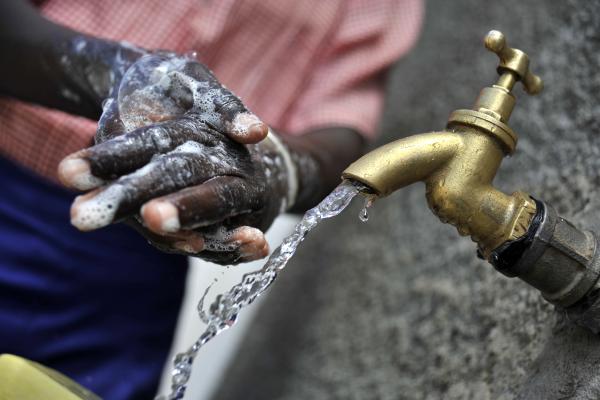
By Johannes Marisa
OCTOBER 15 was Global Hand-washing Day where people highlight the importance of washing hands. There are some people who do not think that washing hands is important. I was in the rural areas on Monday where we were burying my aunt who succumbed to hypertension complications. What I saw was flabbergasting, with almost everyone going for handshakes but without readily-available water to wash hands. It is time we preach about the importance of hand-washing if we are to win the fight against many diseases that have been terrorising us for long.
So many contagious diseases are transmitted through hands and about 80% of them could be averted by washing hands properly. Many viruses and bacteria like Staphyloccocus Warneri, Aureus, Klebsiella, Enterobacter and Pseudomonas Fluorescens are found in the hands and can cause severe infections in the body.
Worms have often transferred from one person to another through contaminated hands that spread their eggs and the circle continues unabated if there is no thorough hand-washing.
COVID-19 is one stubborn virus that is transmitted via bodily secretions like saliva, mucus or cough droplets which one can carry in the hands.
Close to five million people have so far succumbed to COVID-19 and the number could have been less if everyone followed correct hand-washing procedures.
Why hand-washing?
Germs accumulate on your hands as you touch surfaces and objects throughout the day.
- Chamisa under fire over US$120K donation
- Mavhunga puts DeMbare into Chibuku quarterfinals
- Pension funds bet on Cabora Bassa oilfields
- Councils defy govt fire tender directive
Keep Reading
You can, thus transmit germs to others or infect yourself by touching your eyes, nose or mouth.
Although keeping your hands germ-free is impossible, hand-washing is the first line of defence against the spread of various illnesses, ranging from common colds to severe infections like meningitis, bronchiolitis, hepatitis A, diarrhoea and many others.
Hand-washing is very important as it removes germs from the hands, thus preventing infectious diseases.
People frequently touch their eyes, noses, mouths without realising it, so germs get into the body with ease.
Approximately 1 500 bacteria are found per one square centimetre.
There are also many other things that are removed when one does hand-washing and these include simple dirt, dust, grease and other substances stuck to the hands.
Toxic substances like battery acid can be very dangerous to both the skin and clothes as the corrosive aspect can have a fulminant effect.
Clothes can be torn while the tongue can be affected if one accidentally takes it through the mouth.
People should, thus appreciate that hand-washing should be common practice and one important thing is the provision of running water at gatherings like funerals or weddings.
There are many events where one has to wash their hands.
- Please wash your hands:
- After going to the bathroom
- Before you eat
- Before and after preparing food
- After handling money
- After coughing, sneezing or blowing your nose
- After touching animals
- After coming into contact with sick people
- Before and after a gathering where there are many people that you shake hands with
- After smoking
- When you get home, or when you arrive at other people’s homes or other venues
- After working in the garden
lest you spread infections.
What are the steps of hand-washing?
Ideally, hand-washing should be done with soap. While many people have resorted to the use of hand sanitisers, it should be known that hand-washing with soapy water is the best way to clean one’s hands.
Sanitisers can leave some pathogens on surfaces as they sometimes resist removal or elimination.
Let us fall in love with hand-washing. The following are some of the critical steps of hand-washing:
- Wash hands with clean running water. Be careful to use running water and not stagnant water.
There are some people who make use of water in one dish where everyone dips their hands in it. This is dangerous.
- Apply soap on to the hands
- Rub hands together for at least 20 seconds under running water
- Dry your hands using clean towel, dryer or air
- Avoid drying your hands using your clothes as you can get germs from your clothes if they are contaminated.
Although handshaking is part of our culture, it is prudent that we reconsider it as many pathogens that terrorise us are transmitted via hands.
The world is changing, with many health developments and emergence of new and obnoxious viruses like COVID-19.
Is it not possible to avoid hand-shaking even when there is no water to wash hands thereafter or if there is no sanitiser.
It is thus imperative to avoid eating anything before washing your hands.
Make sure you are always safe as your personal hygiene can determine your overall health.
Many deaths can be avoided if we all become serious about our personal hygiene.
- Johannes Marisa is president of the Medical and Dental Private Practitioners Association of Zimbabwe. He writes here in his personal capacity.











